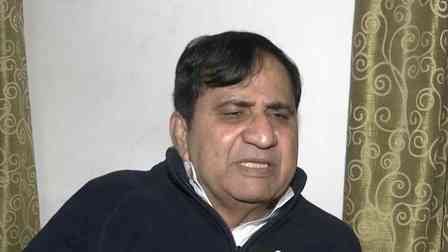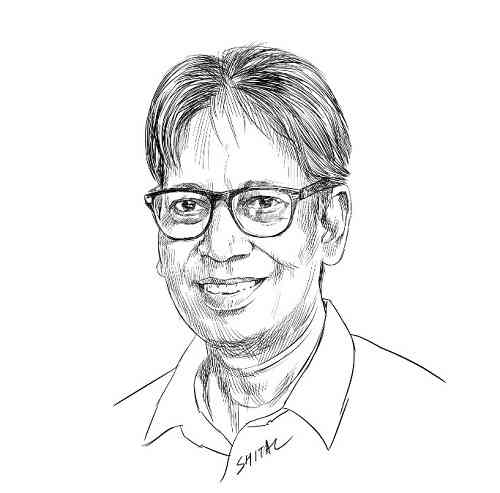Is a man as young as his spinal column?
Joseph Pilates said- “If your spine is stiff at 30, you are old, if it is flexible at 60, you are young. Everything in the world has an expiry date. So does our body. The challenge is how much can we push forward the date to. Spine provides support, movement, protection, coordination and control. The spine provides support to our head, shoulder and frame of the body.

Authored by Dr Palak Dengla, Chief Physiotherapist, Aster RV Hospital
Joseph Pilates said- “If your spine is stiff at 30, you are old, if it is flexible at 60, you are young. Everything in the world has an expiry date. So does our body. The challenge is how much can we push forward the date to. Spine provides support, movement, protection, coordination and control. The spine provides support to our head, shoulder and frame of the body.
Literature states, human body starts degenerating somewhere around 20-25yrs of age. Spinal discs are shock absorbing pads between each vertebra which start to wear out at a faster pace due to improper lifestyle. This can lead to degenerative disc disease (DDD). Your body, especially your spine, craves movement. So, we are not doing it any favours by slaving over our computer screens for hours at a time in the same position day in and day out. Moreover, lack of sunlight exposure reduces our Vitamin D3 levels thereby reducing the absorption of calcium in our bodies. This is a high risk for spine softening called osteoporosis.
Hydration is utmost important for a healthy spine. Spinal disc is 90% water, thus as day advances the water content of the spine keeps reducing due to less activities and more of static postures. Due to movement, the musculoskeletal structures like the intervertebral discs, ligaments, muscles, and nerves get a chance to lengthen, contract and imbibe with water and nutrients.
Signs of degenerated spine include tingling, numbness in feet, low back pain, weakness in legs, etc.
Following predisposing factors are seen for an unhealthy spine:
Inadequate sleep: Sleep helps the spine to rejuvenate and get the lost water back by the process of imbibition. It relaxes the tissues and the muscles around. Lubrication brought by the proteoglycans improves due to proper 8 hrs of regular sleep.
Menopause: Due to estrogen deficiency, obesity, low back ache, sleep disorders, low bone density, lipoprotein changes, collagen deficiency and others start setting in during menopause. Thus, an active lifestyle with regular exercise is of importance for a healthy spine. Else high risk of osteoporosis and osteoarthritis set in.
Foot Position: Walking pattern (Gait), faulty position of the foot when in standing, lower limb muscle imbalances are commonly reviewed predisposing factors for low back pain.
Mental Health: Stress releases cortisol and adrenaline in the body. This leads to tightening of the postural muscles. Moreover, stress induces shallow ineffective breathing, which weakens the core group of muscles especially the pelvic floor and the diaphragm. This subjects the individual to low back pain.
Lifestyle habits: Smoking, drinking, long hours of sitting/less activity, obesity, less outdoor activity, influences the body towards poor spine health.
Top 5 exercises to enhance the health of our Spine:
Exercises have been consistently proved to enhance the life of the spine. In my experience, once I had seen a case of an 80-year-old man whose spine on the X-ray was as healthy as a 40-year-old. So, it is all about how fit you want to keep yourself.
1) Lumbar & Thoracic Rotations
2) Mcenzie Back Extensions
3) Cat & Camel
4) Prone & Side Planks
5) Swimming
Additionally, regular strengthening and workplace ergonomics and sleep ergonomics have been shown to reduce the long term early degenerative stresses of static postures on the spine. Following the rule of 20-20-20 and 90-90-90 at the workplace is essential to keep low back pain at bay. One can consult a Physiotherapist to understand a tailor-made program for oneself to have a better quality of life and increased longevity.


 City Air News
City Air News 









